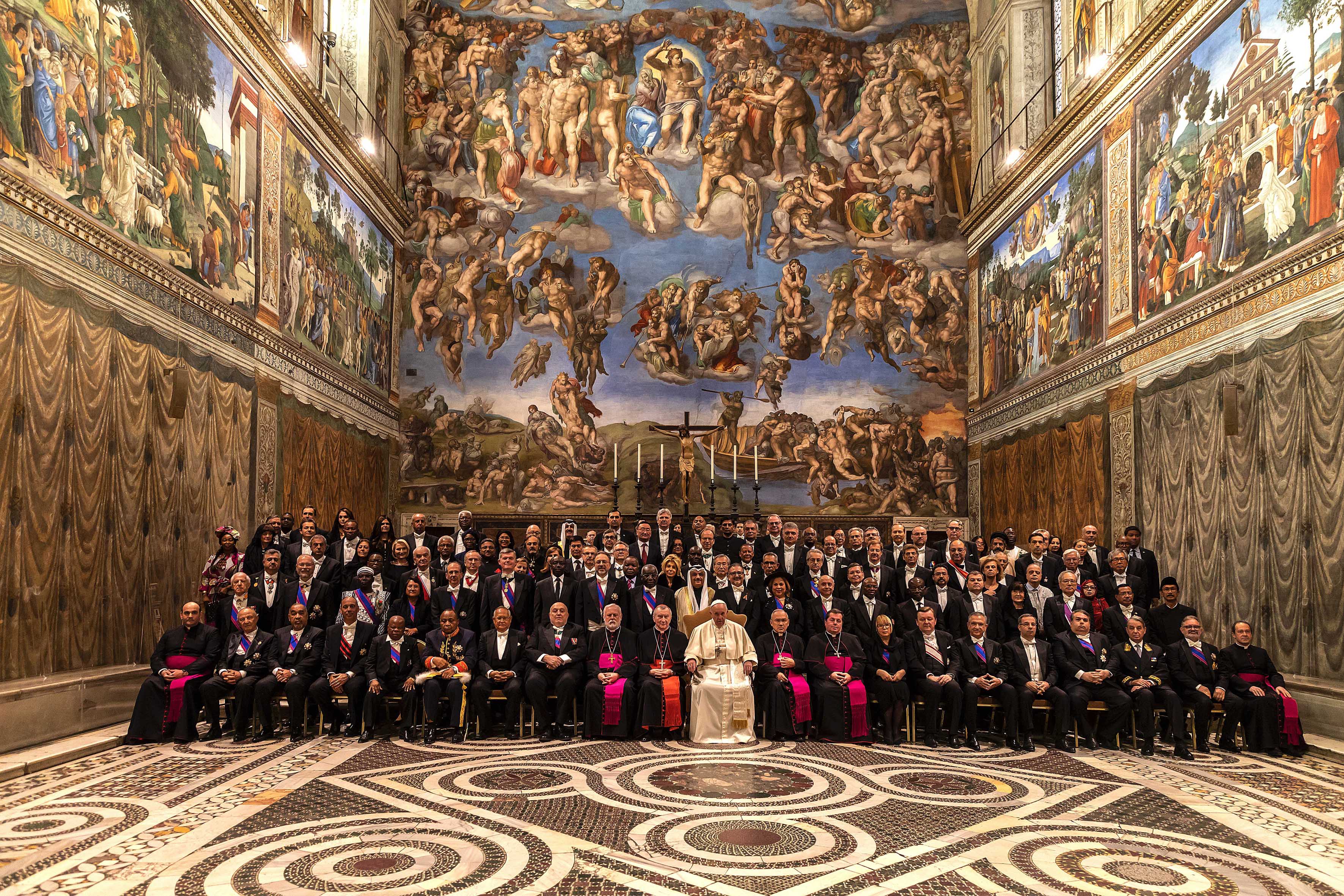COMMENT
It’s “unconventional” not because it’s ideological, as many insist on repeating, with the purpose of triggering intra-ecclesial conflicts and amidst the public opinion at large, but because it forces everyone, including decision-makers and political leaders, to face their own responsibilities while ensuring concrete pastoral solicitude and for the service of charity. But it makes a clear distinction in terms of roles and related responsibilities

Pope Francis’ address to the diplomatic corps for the traditional exchange of New Year greetings is hopeful. Of the many situations of conflict and tension across the globe, Europe included, it tends to enhance – while keeping nothing back of all the suffering – the aspects that give us reasons to hope.
The attitude, the tone, have great import in a world without a focal point, where the awkward trio – one-plus-two, as commonly defined by observers, namely United States plus China and Russia – are unable to reach an equilibrium and proceed with tears and rifts instead.
A hopeful tone is conveyed especially with regard to an issue that the Holy See has at heart, namely, the question of religious freedom in China.
The framework is a realistic interpretation, notably a personalistic, humanistic reading of “multilateralism”, which Pope Francis quotes from Saint Paul VI’s address to the United Nations in 1965, clearly directed at the “defence of those most vulnerable”, denouncing “the search for a quick partisan consensus”, and “new forms of ideological colonization”, a “’spherical’ notion of globalization, that produces populisms and nationalisms as a reaction.”
It equally touches the question of migrants, whereby the address to the diplomatic corps represents an opportune occasion for reflection. And for clarity.
In fact, we sadly see a widespread equivalence of ‘Pope Francis – reception of migrants’ in the communication system, which as a result is commonly found also in everyday language. Moreover, the vulgate whereby the Pope has nothing else to say and says nothing else – even in peremptory, non-questioning terms – is gaining credibility. This in turn sparks off rival groups of supporters, coupled by media hype, with the practical, caricatured outcome of silencing the word of the Pope (and of the Church), reduced to the repetition of a refrain that emphasizes its marginalization. Consequently, nobody takes the trouble of adopting concrete public policies to address this issue, which in fact is confined to an act of propaganda.
In truth this is the fundamental point, and in his address to the diplomatic corps, which, to give a sense of proportion, rightly dedicates less than a twelfth of the whole speech to the migrant issue, the Pope clearly states: “Recent events have shown the need for a common, concerted response by all countries, without exception and with respect for every legitimate aspiration, whether of states or of migrants and refugees themselves.”
Indeed, the Pope’s speech is unconventional. Not because it’s ideological, as many insist on repeating, with the purpose of triggering conflicts inside the Church and amidst the public opinion, but because it forces everyone, including decision-makers and political leaders, to face their own responsibilities while ensuring concrete pastoral solicitude and for the service of charity. But it makes a clear distinction in terms of roles and related responsibilities.